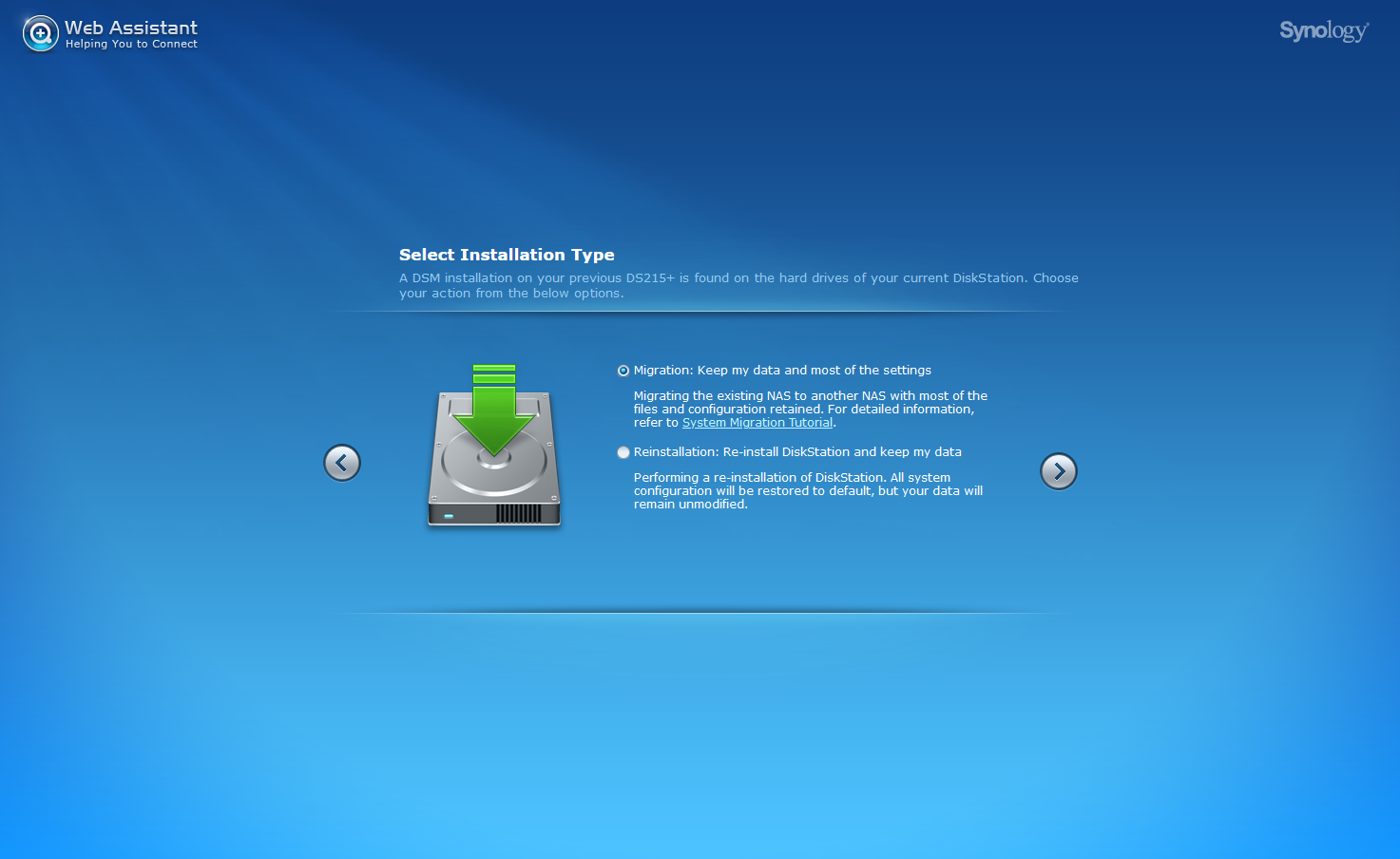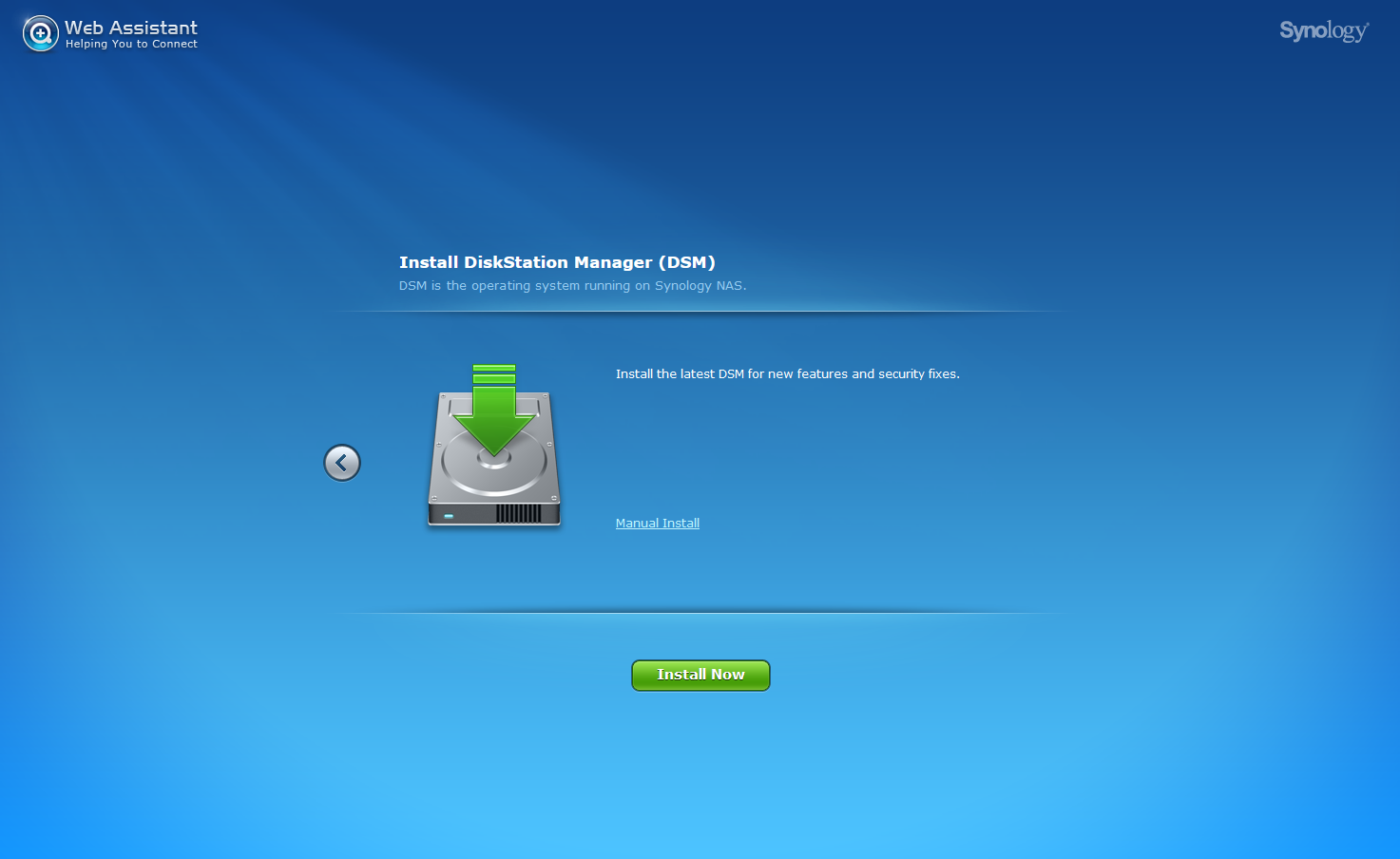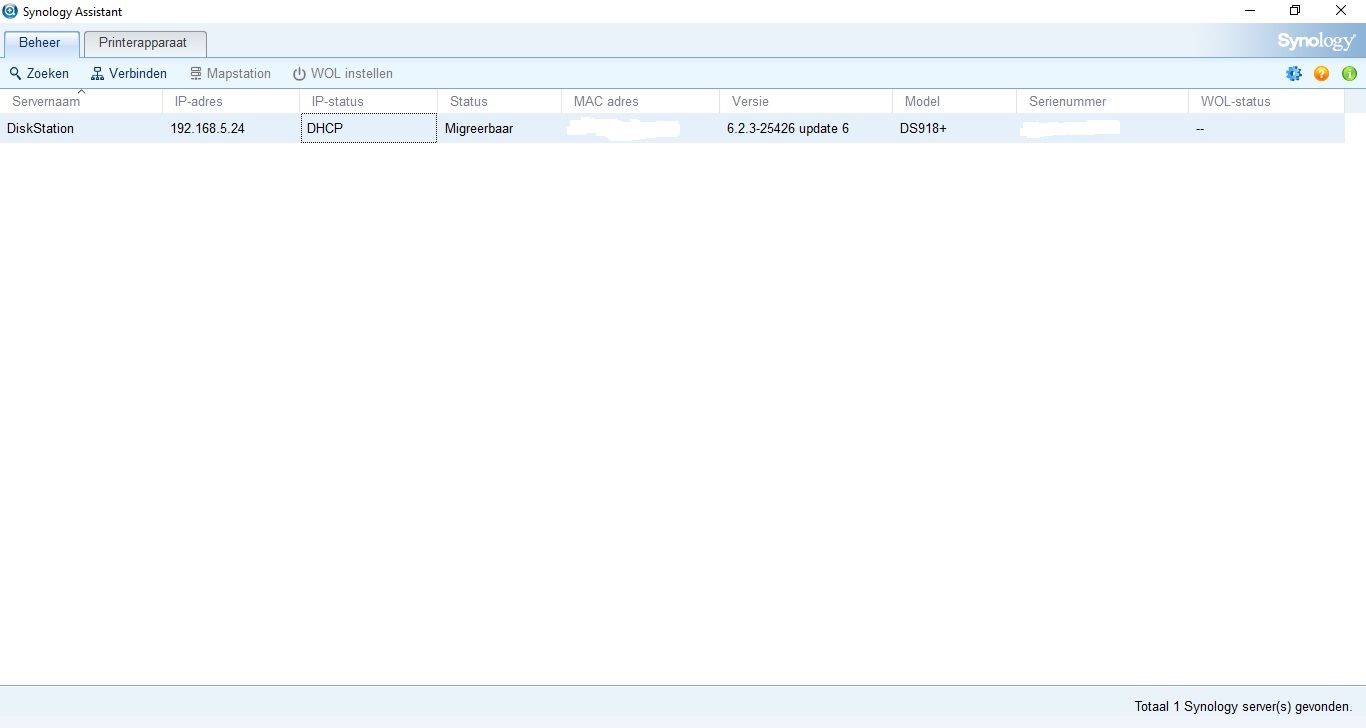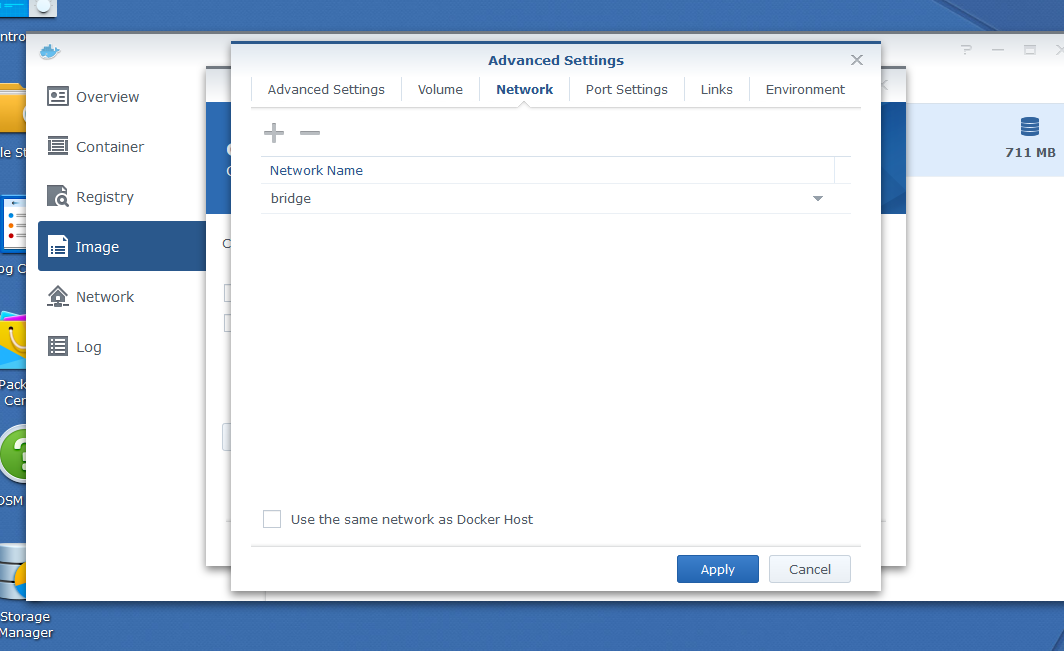Seamless roaming
-
@johnpoz I will check the version before I update, no problem. It’s a shame I cannot change the FS to btrfs.I have a 2HDD WD red and make a backup to an external usb of which I have 2, which I replace every odd and even week. So one attached for external backup and one in the vault. Why should I need more bays?
-
Huh you do understand to run VMM you need btrfs right ;)
You need more bays for more space - duh ;)
https://www.synology.com/en-uk/knowledgebase/DSM/help/Virtualization/requirements_and_limitations
Create Btrfs volumes to be used as storage for virtual machines:Before installing the Virtual Machine Manager package, please set up at least one Btrfs volume on each Synology NAS server. The volume will be used as the storage on which the virtual machines will be stored.
-
@johnpoz no I don’t understand I need btrfs to run vmm. Btw It takes a lot of time to load the forum when I run it the first time, is it me? I thought it was pfBlockerNG, but I seems it doesn’t
-
Not having any issues with forum.. Pops!
Yeah to run VM on synology you have to have atleast 1 btrfs volume... Why do you think you can not run that? You hoping to just plug your disks from your old nas into the new one? If so convert one of them to btrfs - or now that you have a 4 bay, get a new disk.. Say a SSD, which would be great for running VMs off of..
BTW btrfs is way better than ext4 anyway... You would want to switch all of your disks to it..
-
You think btrfs is better than zfs?
-
Synology doesn't support ZFS so how is that even an option? Amount of ram isn't there either. For the size of the arrays you could setup..
So what your suppose to have like 1GB per 1TB.. I throw 4 8TBs into the thing.. When it comes with 4GB and only expandable to 8.. And the 14TB disks are out.. What if I have 4 of those in there..
If you want to run ZFS you would really need to DIY nas..
-
@johnpoz I know Synology does not support zfs, it was just academicly zfs or btrfs, I am glad my apu2c4 uses zfs on pfs It has ECC memory, thus it safe guard 100% a powersurge.
-
@Qinn said in Seamless roaming:
thus it safe guard 100% a powersurge.
Yeah not going all in on that sort of statement ;) UPS is the best thing to do against power issues if you ask me..
As just an academical question on zfs vs btfrs - are you talking openzfs or zfs? ;)
Not sure why btfrs got such a bad rap when it came out.. I have had zero issues with it.. But then again I have not put any filesystem through its paces in years and years and years.. So anything I said would be mostly speculation and opinion of what I have read, etc. I haven't had to deal with storage as the admin guy for a good 10+ years..
And I really don't use any of its extra features of taking snapshots of my data, etc. I take snapshots of my VMs - but not my media files.. No real point.. That is more for enterprise when you have 100's or 1000's of users storing files that are stupid users.. And then they call you and say hey I overwrote my presentation with the wrong file, can you restore the one from 3 hours ago ;)
That sort of thing doesn't happen when your the only user of the NAS and your not an idiot ;) hehehehe
So those sorts of features are hard to actually "test" Guess could be taking snapshots to protect against some sort of ransomware.. Then again not an "idiot" I don't run code on my machines that I am not 100% sure about.. And then even then so what if it overwrote my media.. I have backups off site and not sync'd of my critical stuff. And to be honest have more fun collecting and maintaining the media than actual use of it.. My friends and family might be pissed that the library went from almost 2500 movies to like 100 overnight (Stuff that really hard to find!) And oh don't get me wrong - I would be kicking myself in the ass for sure.. But in the big picture it wouldn't be the end of the world.. And give me excuse to rebuild ;)
So wouldn't be the guy to ask other than just beer chatter to which one you think is the best.. I have more experience with btfrs - so that currently would get my vote.. And then again in current setup its moot.. My nas doesn't support zfs - and sure not going to change everything out for feature X of zfs that btfrs can not do - which is what anyway? They really just do things a bit differently.. What feature is in either of them that the other one doesn't also say they can do? So one might say we do X better, or we do it faster.. But is there any feature that one can do that the other just says - sorry we do not support anything like that.. I don't think so..
-
Hi @johnpoz my ds918+ has arrived, I want to migrate is there a way to seen the version before I migrate as it wants to update during process?


-
...did it using the Synology assistent ;) , as promised here it is...

-
I installed docker and unifi , follow this video https://www.youtube.com/watch?v=FUfruORHRdw without de firewall tweaks, then tried to login and restored The config after it completed, I tried to login and saw that the UAP’s are disconnected. When I login From a desktop using the Software everything is nice, any idea what’s wrong?
-
Docker would normally be on their network network... Not going to be able to talk to the AP..
I really wouldn't run the controller in a docker, I would run in own VM.. Much easier to take snapshots that way when you want to update, etc. In case something goes funky.
6.2.3-25426 update 6?? Where is that?? That makes no sense.. There is no update out that I am aware of for 6.2.3..
https://www.synology.com/en-us/releaseNote/DS918+ -
@johnpoz no idea john that what it reported
-
@johnpoz I wanne go ahead an try using the Synology (on a different subnet 192.168.5.x then the current controller 192.168.1.x) as controller using docker, following this guys guide, without the firewall part, as my synology has no firewall running. https://lazyadmin.nl/home-network/unifi-controller-on-a-synology-nas-with-docker/
When I logged in using the ip of the synology accessing port 8443, I restored the backup then logged in and got a, "bad network" and status "disconnect". Duhhh, me still not completely grasping the unifi concept. So I figured out that the UAP has stored the ip of the controller.
From what I have read I need to ssh into both the UAP's and on the cli do:
set-inform http://ip-of-controller:8080/inform..am I on the right track?
or is the the way to go using the UI?

-
Yeah for your AP and controller to be on different network you need to do L3 adoption..
Why would you want to do that? Other than making it more complex than it needs to be? Do you run segmented network now? Why do you think the AP and Controller should be on different vlans?
Docker and vlans on synology not all that simple ;)
Docker networking is its own thing to be honest.. Not sure what version of DSM that guide was using... But clicking the button to put the docker on the same network as host is no longer there..
I don't think there is an easy way in the gui to disable the nat that happens between the docker and the host network.. Unless you are a docker guru already - I would really just suggest you run your controller on VM.. This gives you way more control over pretty much everything on the controller and the network its attached too, and really easy to put a vm on a different vlan in DSM..
-
@johnpoz the Synology is in the WLAN as most devices are in the WLAN and the desktop that I am running the controller software is in the LAN, of course I could change this.
No not a docker guru ;)
You advise to use a vmm running the controller, can you point me to a config to set this up?
btw you remarked ". But clicking the button to put the docker on the same network as host is no longer there.." but it is still there...

-
@johnpoz not to push, but if you can find the time, could you point me towards an DIY how to get the controller in vmm on the synology?
-
Install whatever OS you want ubuntu, centos, debian - then install the controller package.
So does your docker get IP that your host is on when you do that? If so then it would be on the same L2 and you would be able to see your AP, etc.
-
The 2 nanoHD-UAP's are connected by UTP and connect to a managed switch that's connected to pfSense.
The nanoHD have 4 VLAN's
192.168.5.x - WLAN
192.168.3.x - P2P
10.0.0x - Guests
172.16.20.x - IoT'spfSense and the nanoHD's are in the LAN with 192.168.1.X
Is it maybe an idea to give the nanoHD's an IP that is in the same subnet as the Synology namely WLAN?
-
You want the AP and the Controller in the same L2.. The problem with docker is there is normally a nat this going on.. Which are not the same L2..
If your AP and controller on not on the same L2 then you need to use L3 adoption..
example
ash-4.3# docker network inspect bridge [ { "Name": "bridge", "Id": "0f675293ee5c05dfffab0e87768f200646e3355732497445611ae250a0838719", "Created": "2020-06-26T05:22:38.90432023-05:00", "Scope": "local", "Driver": "bridge", "EnableIPv6": false, "IPAM": { "Driver": "default", "Options": null, "Config": [ { "Subnet": "172.17.0.0/16", "Gateway": "172.17.0.1" } ]then ip masquerade is used to match up ports on the bridge network... This i not the same L2... if docker does put this in the same L2 then it amounts to running multiple L3 on the same L2 which could sure prove problematic for L2 adoption of the AP in your controller. Are your APs adopted by your controller?
I would suggest if you want to use your controller in a docker, and L2 adoption is not working - to use L3 adoption..
But yes generally speaking your controller and AP (managment ip) would be in the same network.. Unless your wanting to put your management IP of your AP on a vlan.. This vlan could be in the same L2 as your controller, or could be different - which again then you would need to use L3 adoption for your controller to manage your controller.
My controller and AP all run on my native vlan (untagged) 192.168.2/24 - I then have a wifi SSID that is in this vlan, this is the vlan I connect my trusted devices to... And then I have 3 other vlans (ssids) on the AP that are in different vlans 192.168.6/24, 192.168.7/24 etc..